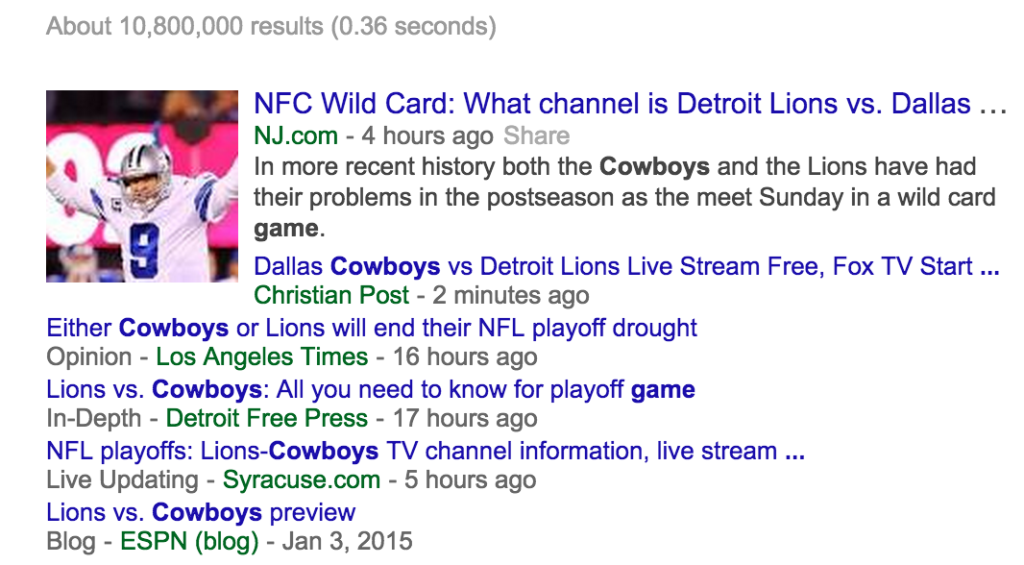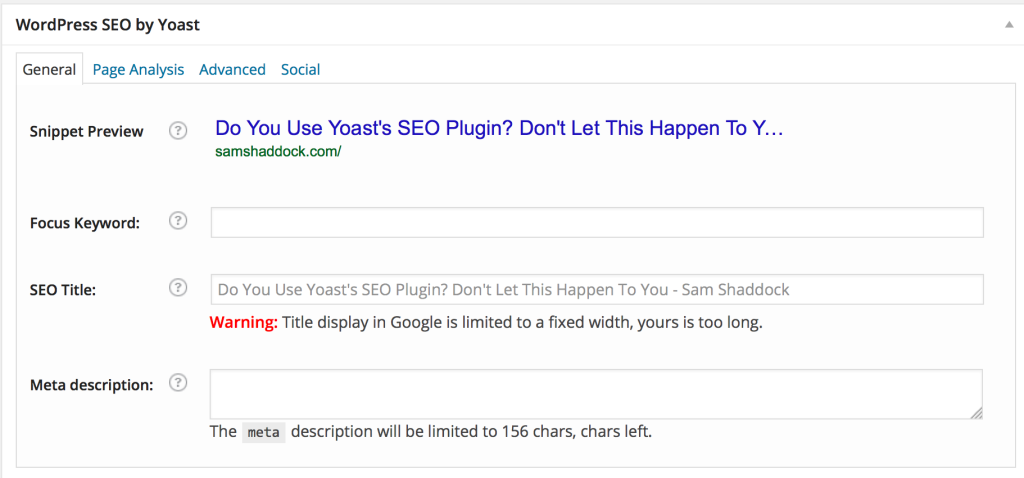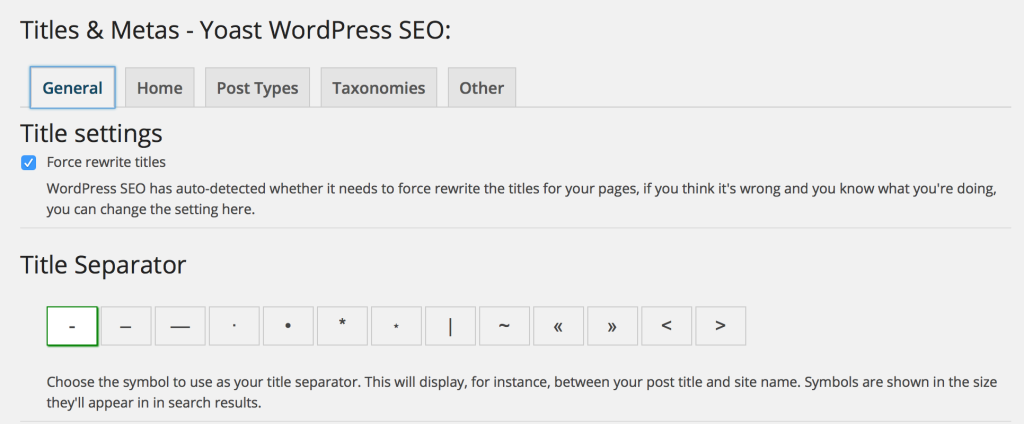This morning I wanted to know whether the spousal unit and I had time to whip up a batch of Chex mix before the Dallas Cowboys-Detroit Lions game, so I Googled the term “Cowboys game.” Shockingly I found no local-news sources on the first page of results, general or news, logged in or out.
What the heck, I wondered? My alma mater is chock full of Dallas Cowboys coverage, some of it expert-level analysis as good as any you’ll find on the Internet. Why did none of it appear for me in search?
Search engine optimization is tricky for any company, especially so in the crowded world of news. Sadly, there is no magic prescription for ranking No. 1 all the time, but there are a few factors within a publisher’s control. I took a quick gander at the DallasNews.com homepage story labeled “Cowboys GameDay: Keys to victory vs. Lions, predictions, more.”
First, let me say that this page is gorgeous. The design team at the News is doing a heck of a job with these special pages. They’re truly a breath of fresh air.
Good sense suggests this story should be near the top of the results for my “Cowboys game” query, but it’s not. So, what gives? Let’s take a look under the hood:
Title tag
Most of the content management systems that newsrooms use are set up so that the title tag pulls from a story’s headline by default. If a publisher doesn’t have (and use, natch) a tool to override the default, then editors are wise to include good keywords in their headlines. The actual H1 headline on the story in question is “Detroit Lions at Cowboys.” It looks great on the page, but it’s a bit spare. Let’s see what the title tag, which is pulling from the page label, is:

Also spare, but at least it contains “Cowboys.”
Now let’s look at the headlines on the search engine results page (SERP) for my query:

Ah, now we’re getting somewhere. Google, creepily prescient as always, somehow knew that I was looking for Who-What-When-Where type of information, so it returned hits that satisfy that need. The headlines above have something else in common: They aren’t ambiguous. Google rewards specificity. In this example, it’s not enough to have “Cowboys” in a title tag and “Detroit” in the H1. All of the top-results headlines contain both “Cowboys” and “Lions.” I’d love to see if changing the title tag on the News’ story would bump it up in the SERPs.
Title tags are extremely important, but they aren’t everything. Other factors at play that are beyond an editor’s control include page load time, social signals, inbound links and more. However, a savvy producer does have some other tricks up his or her sleeve. This particular page may benefit from a few other enhancements:
Canonical URL: This tells the search engine “This URL is the definitive source for the content it holds.” Standard SEO stuff.
Google news keywords tag: You’ve probably heard that Google discounts keywords because so many people abused them in the early days of SEO. It makes an exception for publishers, who with a bit of code and discipline can increase their chances of rising above the fray. The News has this code (I know this because I led its implementation). Let’s take another peek at the source code to see how it’s being used:

Right. So, the good news is “Dallas Cowboys” and “Detroit Lions” made the cut. The bad news? So did 18 other terms. Google’s limit for this tag is 10.
Google news standout tag: This tool for calling out a publisher’s strongest pieces works, but only if you use it. Does this story qualify as standout? Not my call, but if I were a publisher who hadn’t exceeded my quota for the week, I might give it a whirl here. (Side note: If newsroom SEO interests you — and I guess it does if you’ve made it this far into my post — follow Adam Sherk. I’ve learned a lot from him.)
Image alt tags: Some experts will say this is too nitty-gritty to worry about. I say why not use every tool at your disposal?
The takeaway: You can have the most beautiful page in the world, but if you whiff on the details, you’ll lose on game day.
P.S. — Go Cowboys!




RECENT COMMENTS